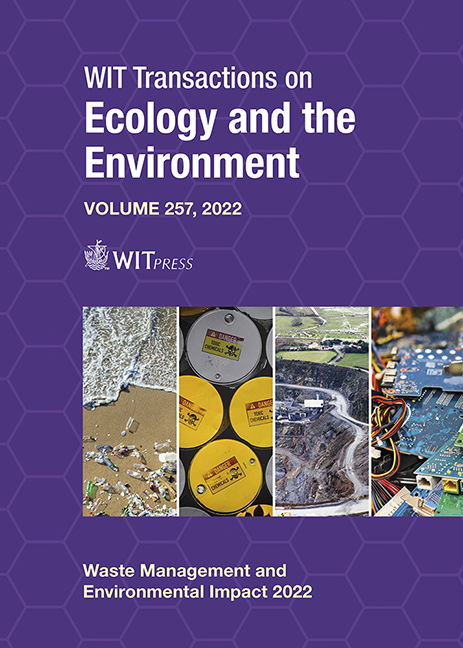AGRO-WASTE ASHES AS A FEEDER FOR THE SYNTHESIS OF SIO2 NANOPARTICLES FOR ROAD CONSTRUCTION
Price
Free (open access)
Transaction
Volume
257
Pages
11
Page Range
53 - 63
Published
2022
Paper DOI
10.2495/WMEI220051
Copyright
Author(s)
MARTIN ALUGA, KAMBOLE CHEWE
Abstract
The global rapid population growth is leading to accelerated food production thus accelerating the generation of agricultural wastes (AWs). Among the AWs management strategies is the valorisation of the AWs into useful products such as the production of silica nanoparticles (SNPs) which are useful in the road construction sector. Production of useful SNPs from AWs for the road construction industry is considered sustainable road construction, as not only does it reduces the carbon dioxide footprint from similar materials such as cement, but it is also cheap and readily available to low-income countries such as Kenya and Zambia. SNPs are of great importance in the production of high-strength materials such as stabilized soil and asphalt of significant strength than the conventional stabilised soil/asphalt with ordinary Portland cement. In this review, recent progress on AWs corresponding ashes (AWAs) with significant silica is studied. The production of SNPs from this AWAs is examined in detail concerning their synthesis methods for high purity SNPs, structure, phase, morphology, sizes, and their application in soil and asphalt stabilisation in road construction. The use of AWs to produce SNPs for use in the stabilisation of soils, bitumen, and asphalt for roads construction is promising, however, there is a need for further research on the large-scale production of SNPs from AWAs.
Keywords
biomass, construction, nanomaterials, nanotechnology, ordinary Portland cement (OPC), silica nanoparticles




